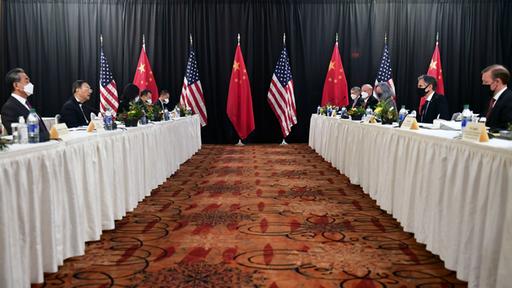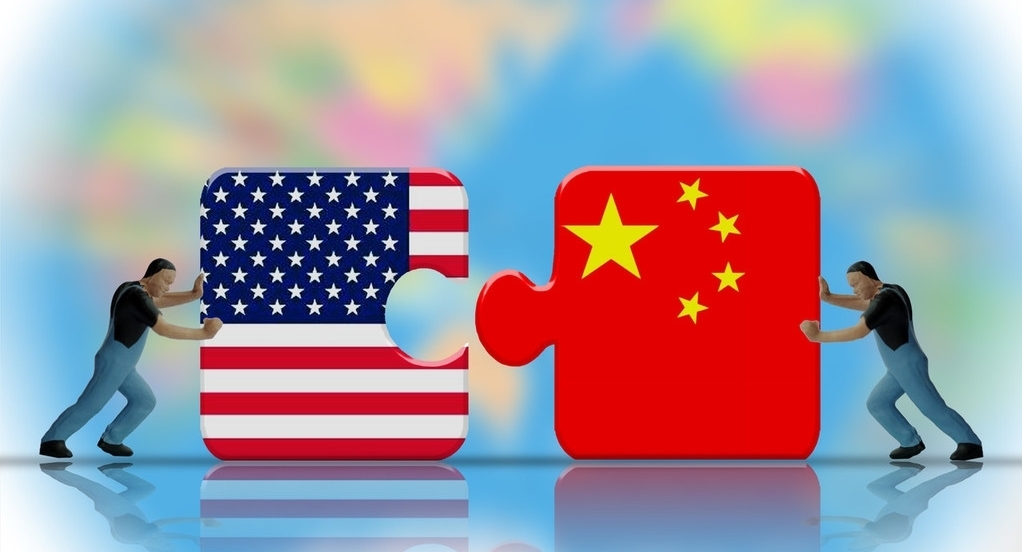U.S. Strategic Adversary against China: Competitive Cooperation vs Confrontation
July 05, 2021
About the author:
Zhao Yangchun, Senior Fellow of Taihe Institute
The current U.S. strategic rivalry against China arose against the backdrop of China’s rapid development as well as America’s attempt to maintain its hegemonic position in the world. The Trump administration's call for “decoupling” has turned the U.S. strategic rivalry policy against China into a kind of strategic confrontation.
President Joe Biden has increased the ideological overtones of the U.S. rivalry policy vis-a-vis China since he took office, arguing that China’s rapid rise will become the greatest challenge to U.S. global leadership and that the competition between the two countries is no longer a battle merely for global economic and trade dominance, but a monumental confrontation between different political systems and development paths. A highly competitive relationship between the United States and China may very well be the new normal in the future.
The Interim National Security Strategic Guidance released by the White House on March 3, 2021, clearly positions the bilateral relationship as a “strategic competition” and admits that the U.S. national security objective is to strengthen its own power and unite with its allies to ensure an ultimate victory.
On April 21, the Senate Committee on Foreign Relations passed a draft of the Strategic Competition Act of 2021 by an overwhelming bipartisan vote, clearly stating that the only rival of the United States is the People’s Republic of China and that the “great rejuvenation of the Chinese nation” essentially reveals China’s intention to establish a “regional hegemony” and to become the “leading world power.”
The bill authorizes the U.S. government to launch full-scale competitive confrontation with China.
The strategic competition between major powers can be generally categorized into two parts: the first being competition for national power, which is reflected in areas such as national interests, geopolitics, development space, economy, science and technology, military and resources; and the second is about national governance, such as systems of institutional arrangements, development models and ways of living, which are mainly about competition over governance, political and economic performances at a technical level.
In the 21st Century, the rise of emerging economies and developing countries like China and other groups of countries has fundamentally disrupted the long-standing dominance of Western nations in the international political and economic “landscape” since the first Industrial Revolution. Such a development has defined the nature of today’s competition between the United States and China which bears characteristics not seen in the previous world power competitions. In other words, the current round of competition is, in essence, more about economic power and governance capabilities. As former US Secretary of State Henry Kissinger once pointed out, “the crucial competition between the United States and China is more likely to be economic and social than military.”
For the foreseeable future, the competition between the U.S. and China is expected to be characterized by the following features: the Sino-U.S. economic and trade relations have shifted from a “stabilizer” to a focus of rivalry for both nations; the Sino-U.S. competition in science and technology has today become even fiercer; the competition over international mechanisms and development models has become more pronounced, and ideological differences are being played up to exert increasing influence on the bilateral relationship.
Judging from its policies on China, the Biden administration is still committed to pitting against the world's second largest economy in the areas of economy, security, diplomacy, human rights, intellectual property rights and global governance, with substantial competition in high-tech fields, such as quantum computing, artificial intelligence, semiconductors, robotics, new energy, biotechnology and advanced materials.
(Source: China Daily)
Although Biden personally disapproves of the Trump administration’s trade war against China, he is tough on issues such as the U.S. trade deficit with China, market access, intellectual property rights, the RMB exchange rate and subsidies for state-owned enterprises, and has not abandoned Trump administration paradoxical “principle of reciprocity.”
However, the Biden administration approaches the competition against China in a fairly different way compared with how the Trump administration dealt with the matter.
Domestically, the Biden administration pays more attention to maintaining and enhancing America’s competitiveness, seeking to win the competition through revitalization and development, namely increasing investment in scientific research, launching industrial policies and improving infrastructures, among other efforts.
Internationally, the Biden administration has stressed more on uniting allies and following international protocols. It seeks cooperation with allies in terms of technology control, investment restrictions, ideology and national security and also applies multilateral mechanisms to establish and modify international rules, thereby, proactively escalating competition against China.
Even though the Biden administration has continued the strategy to compete with China and has, to some extent, intensified the competition, its emphasis on “smart competition” and call for less “hard confrontation” will help control the cost incurred by competition for both countries, thus avoiding a “lose-lose” scenario.
It is important to note that currently the U.S. is politically and socially divided to a great degree and that the extreme right, led by former president Donald Trump, still yield enormous influence on the American electorate. The Biden administration still faces many constraints in formulating its China policy for it has become “politically correct” to remain “tough on China”, which is also a consensus shared across the aisle.
Especially at the time when the U.S. is slated to hold midterm elections in 2022, and the Democrats, who hold merely a razor thin margin in the Senate and a slim advantage in the House of Representatives, need to curry favor with conservative electorate in order to hold political control of both houses of Congress, the Biden administration is expected to continue its hard line in rivaling with China and may adopt a more aggressive attitude towards China.
On June 3, 2021, Biden signed an executive order with respect to “the threat posed by the military-industrial complex of the People’s Republic of China,” blacklisting 59 Chinese companies, such as Huawei, the Semiconductor Manufacturing International Corporation (SMIC) and China Aerospace Science and Technology Corporation, prohibiting them from making investment transactions with U.S. persons and companies.
Five days later, the U.S. Senate overwhelmingly passed the U.S. Innovation and Competition Act of 2021, which aims to invest more than USD200 billion in American technology, science and research, therefore racing with China and countering China’s growing global influence with strategic, economic, diplomatic and technological means.
(Source: scmp.com)
With the conclusion of the recent 47th G7 leaders’ summit meeting held in the UK, the Biden administration is likely to continue its efforts on competing with China, and the Sino-U.S. strategic competition is expected to be strained under more uncertainties.
It is undeniable that while the United States tries to compete fiercely against China in areas such as state power and governance models, both countries continue to cooperate in preventing proliferation of weapons of mass destruction, countering terrorism, addressing climate change and infectious diseases and maintaining the stability of the international financial system, based on their respective interests.
Former U.S. Treasury Secretary Larry H. Summers once said, “It’s of two individuals who have a long and tangled past with each other with some good and not so good memories who find themselves in a lifeboat in a turbulent sea, a long way from shore… both need to row and to row in unison…”
Laura Rosenberger, Senior Director for China at the U.S. National Security Council, recently said one aspect of the U.S. policy towards China was "countering China where we need to and cooperating with China where it is in our interest to do so. We think this is how we can manage competition in a way that will prevent us from moving into conflict but that will allow us to maximize cooperation.”
In this sense, whether the U.S. will choose cooperative competition or escalate competition to confrontation against China depends not only on the “time” and “trend” of various aspects but also on the strategic intentions of both nations.
(Source: China Daily)
—————————————————————
ON TIMES WE FOCUS.
Should you have any questions, please contact us at public@taiheglobal.org


